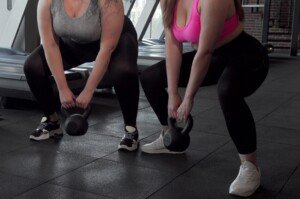A treadmill stress test to determine the presence of heart disease in women is not as accurate as you may think.
If you’ve always imagined that all a woman needs to do, to find out if she has clogged coronary arteries (heart disease), is to take a treadmill stress test so that doctors can see if there’s restricted blood flow during exercise — think again.
Maybe one day it will be that easy, but currently, it’s nowhere near it.
“It is a known fact that stress test has 50% sensitivity and specificity for detecting CAD in women younger than 60 years of age due to the phenomenon of false positive test,” says Asim Cheema, MD, who’s board certified in internal medicine, cardiovascular diseases and interventional cardiology by the American Board of Internal Medicine. Dr. Cheema is with Your Doctors Online, an online doctor chat site.
Dr. Cheema also adds, “The exact cause/mechanism of false positive test in women is unknown but likely related to hormones (progesterone).”
Let’s Look at a Study
A study in the Dec. 2012 issue of The American Journal of Cardiology reports a promising conclusion to researchers’ investigation of treadmill stress tests identifying heart disease in women.
However, the percentages aren’t exactly super high, as you’re about to find out.
The report points out that many physicians don’t put a lot of faith in the accuracy of the exercise treadmill test (ETT) in detecting women’s heart disease.
Nevertheless, the researchers, from UC Davis, discovered that the exercise treadmill test can accurately predict heart disease in women over age 65.
Though this sounds great, it’s not too impressive for women under age 65.
The paper notes that the predictive efficacy of the treadmill stress test was enhanced by two particular EKG indications.
The exercise treadmill exam includes an EKG reading. If the exam detects signs of heart disease, then more invasive and definitive procedures are warranted, such as the catheter angiogram.
This is actually the gold standard in identifying blockages, but it’s very invasive and carries with it the risk of stroke and heart attack.
The study involved 111 women who reported chest pain and whose treadmill results were “positive.” These women underwent catheter angiograms.
The Results
Half the women had heart disease (determined by the catheter angiogram).
When the results were broken down by age, the percentage went up to 68 percent for women over age 65, and down to 36 percent for women 35 to 50.
The percentage for the older women may not seem impressive, but to the researchers, it’s a mark of a successful procedure.
What about the EKG?
Two indicators, called the ST-segment depression and the ST-segment recovery, turned out to be important to the ETT’s diagnostic value.
For women over 65, longer ST-segment recovery time yielded an 80 percent prediction rate of heart disease.
Tips for Reducing the Risk of Coronary Artery Disease for Women and Men
• Don’t stress about the small things in life. Practice stress management.

• Realize that just because you “feel” beautiful doesn’t mean you practice heart-healthy habits.
Make sure you’re at a medically acceptable weight.
• Do both strength and cardio exercise.

Shutterstock/Nata Kotliar
• Don’t assume your heart is healthy just because you weigh 120. If you smoke, quit. If you eat a lot of processed foods, cut back, especially on high sodium foods.
• Avoid trans fats, limit saturated fats, and eat more “good fat” foods like olive oil, seeds, nuts and fish.











































